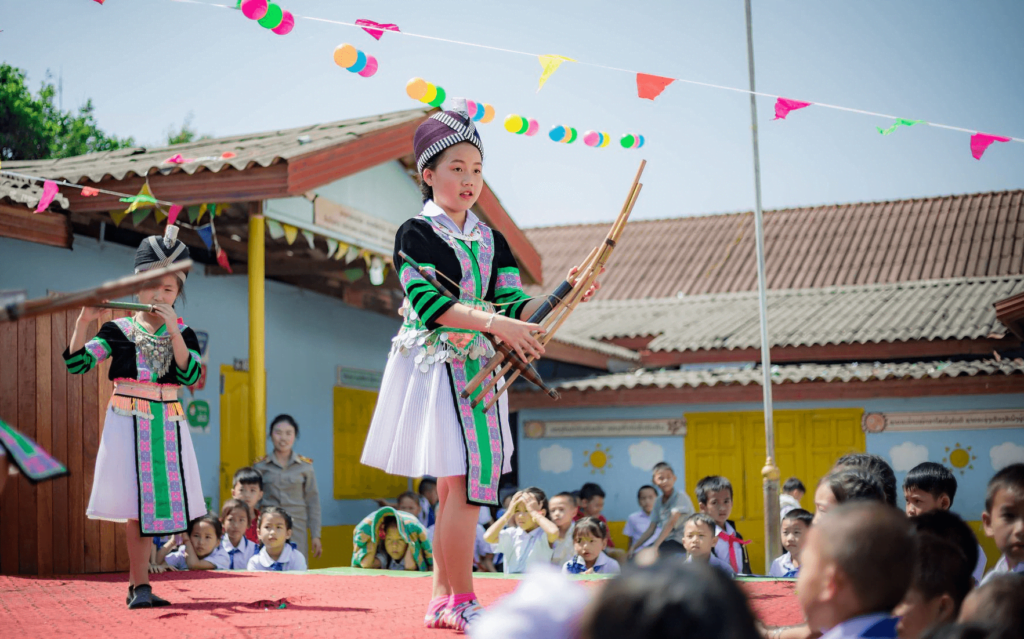
Why are Older Hmong Men Going Overseas?
Having counseled a number of folks impacted by the issue of older men going overseas to marry second wives as well as having dealt with the issue in my own immediate family, I think there needs to be some clarity on this unique cultural problem in our community. As a disclaimer, the vast majority of what I’m writing is speculation of what men go through based on my own experiences and in supporting those wrestling with this issue. But regardless, I hope by sharing my thoughts and experiences, it might be of help to others out there who are dealing with it in their families or communities.
1. It’s a symptom of deeper issues
Although it may seem to all of us that many older men simply want to go overseas to get a second wife, the choice of going overseas often hides a large set of emotional and mental issues that affect men, especially in the latter part of their lives. In my experience with my own father, I watched him become depressed for many years before he finally decided to go overseas. He would come home from work and not talk to anyone, sitting quietly and playing solitaire. From a purely psychological point of view, there are a number of circumstances that men experience in the latter part of their adult lives that might be attributed to what causes men to become depressed or experience a “mid-life” crisis.
During the latter years of a man’s life, he stops serving as a father when his children grow older and become adults. When he finds himself unneeded by his children, he experiences a loss of a major role and identity that has helped give him purpose, meaning, and value in his life, especially as a Hmong man. My father considered himself primarily responsible for raising the boys in our family. When my brother and I grew past the age of 18, my father did not have the same enthusiasm or interest in being a father any longer. Although my sisters were still in elementary school, he felt it more appropriate that my mother raise them. Our extended family isn’t very big either, and so my dad didn’t have a clan to look after. Unfortunately without direction as they get older, men may look for a new family rekindle a sense of meaning and purpose in life.
Additionally many men find themselves increasingly isolated and depressed as they age. They lose close friends, start growing distant from their children who are becoming more Americanized, while many struggle with the stress and frustration of their jobs and lives. There is a lack of social support systems for older men. They often are unable to build deep adult relationships with their children as they maintain the role of father long after their children become adults and instead of finding common interests and ground, they try to retain their sense of authority, expectations, and hierarchy in the family. This makes it hard for their adult children to develop open and communicative relationships with their fathers as they get older. But without strong social and familial bonds to support men to root their emotional center in the families and friends, men will often seek “love” or a new family to gain a sense of connection to others.
2. Finding a sense of social status and self esteem
Sadly, many older Hmong men have little support in developing a strong sense of self-esteem and social status in our country. Many fail to achieve the level of success they would like to accomplish. Before he left to Asia, my father was very intent on leaving a legacy such as a business that reflected his worth as a person before he passes away. It is hard for many men to reconcile with the struggles and disadvantages they experience as refugees in this country and how it prevented them from achieving their goals. In addition, there is less and less value being placed on the cultural and historical knowledge and skills that older Hmong men possess. In having little to be proud of, many men hunger to be validated to have worth and social status. Unfortunately our culture does have a general notion that having multiple wives is seen as a positive social status. This is not to say that all families value multiple wives. Both my mother’s and father’s families do not like the idea of multiple wives and highly discourage the practice among my relatives. But there is a general sense of positive regard for men who have multiple wives and it does provide for a quick solution for men who might otherwise feel they have no other options in feeling good about themselves.
Also men who travel overseas are seen as significant or successful to the Hmong communities there. With their American nationality and money, they can hold a “higher” social status in the old country and may be recognized as someone is helpful, supportive, and caring to the second wife’s family. This is reflected in the saying that many men are going overseas with the excuse that we need to “love and care for the Hmong community overseas too.” In receiving recognition and appreciation there that they long for here in the US or their families, men might experience a sense of fulfillment that they have struggled to find over the years.
3. There is a lack of outlets and spaces to discuss what is really bothering men
The question needs to be raised as to why are so many men experiencing different issues and problems are doing the same thing. This speaks to the lack of socially and culturally acceptable outlets for older Hmong men wrestling with these issues. Many of our cultural roles and expectations of men do not allow for men to be vulnerable and genuine. Instead of having a space that acknowledges and accepts their fears, frustrations, and needs, men often feel they must maintain their masculinity and social position and therefore cannot falter or show weakness, especially as a father or an elder. For this reason there is really no one that men can talk to about their issues. Due to a lack of people to talk to, I have had an uncle I had met for the first time in decades break down to me about his frustrations with his son. He was struggling to deal with the fact that his son hated being Hmong and had left the family. My uncle was struggling to find those that might understand him and could help him with his situation, and because I was someone who he wasn’t deeply connected to in his day to day life, he felt more comfortable opening up to me than anyone close to him.
Although many men even say they are going overseas to get a second wife, it doesn’t mean that is something they are deeply invested in. I have heard stories of men who got to Thailand and Laos but found the idea of dating younger women unattractive and instead end up helping young women get out of problematic situations caused by other older men. In the end, many find it is just a fantasy that they project to get away from the problems that in their lives. Unfortunately it is too common that men are in the situation where they have no spaces and avenues for dealing with their problems. Too many give up trying to sort out why they feel the way they feel or in finding solutions to their problems and instead think that a second wife or adventure overseas might alleviate their stress and anxiety.
4. What are possible outlets?
I don’t have any concrete answer to this question, particularly as there are many different situations that may lead a man to want to go overseas. I have seen some programs and activities that have helped many Hmong men find a sense of self-worth, validation, and belonging in their communities or families that might be of help to those struggling with this issue.
Cultural/historical projects and programs – Many men find a sense of purpose and value in participating in a cultural or historical program or project. My father spent much of his time traveling overseas collecting and translating kwv txhiaj for a book he wanted to write. It gave him a deeper connection to his culture, his history, and validated his education and interest in language. Many men also teach cultural arts or traditions to younger generations of men, which allow them play a larger role in the community and the culture.
Sports, music, or hobbies – Coaching, teaching, or participating in sports and hobbies can give men new roles, relationships, and identities around specific interests.
Gardening, fishing, hunting, or other outdoor activities – Giving men a concrete focus and experience where they feel connected to nature can allow them to de-stress and get away from the complicated environment at work or home.
As a community organizer, I think there is much we can do to help men who are struggling with the different issues that might lead them to want to go overseas. There is a lot of awareness building for our community that has to be done that allows us to have a more compassionate view of our fathers and elders as well as develop support systems tailored for them. Therapy, family counseling, mediation, support groups, and other programs can allow for more men to be supported and even support each other as they wrestle with the problems they’re experiencing as they get older, but I simply have not seen any culturally competent strategies and solutions for more clinical or programmatic strategies.









Responses